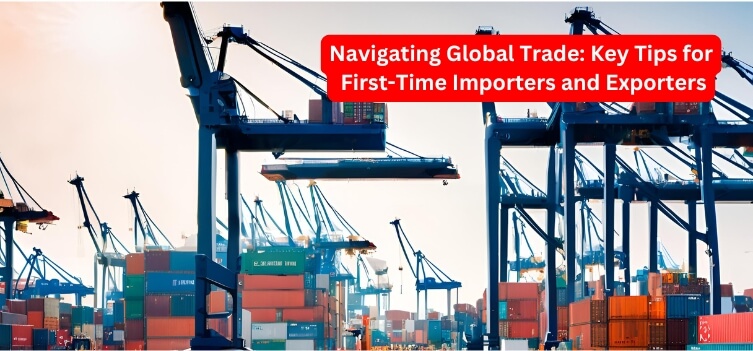Entering the world of global trade can be both exciting and overwhelming for first-time importers and exporters. Whether you’re looking to import products to meet local demand or expand your business by exporting goods abroad, success in international trade requires more than just a basic understanding of logistics. It’s about building strong relationships, understanding regulations, and strategically managing risk. Here are a few key tips to help you navigate the complexities of global trade with confidence.
1. Research Your Market and Understand the Demand
Before diving into international trade, it’s essential to research the market you plan to enter. Understanding both demand and competition in the target market is crucial. Ask yourself: What are consumers in the target market looking for? Are there local preferences or regulatory requirements that you need to be aware of? Knowing the ins and outs of local market trends, pricing, and consumer behavior will help you position your product more effectively. If you’re importing, research the local demand for the goods you’re bringing in and identify reliable suppliers. If you’re exporting, identify potential buyers and evaluate whether there’s a viable market for your product abroad.
2. Understand Import/Export Regulations and Tariffs
Navigating international regulations and trade barriers can be one of the most daunting aspects of global trade. Every country has its own import/export laws, customs duties, taxes, and safety standards, and failing to comply can result in costly delays, penalties, or even shipment confiscation. It’s important to familiarize yourself with these regulations before making any transactions. For example, you’ll need to ensure your products meet the destination country’s standards and requirements, which may include safety certifications, health regulations, or specific labeling practices. Additionally, keep in mind that tariffs, import duties, and taxes can add significant costs to your products. Research these thoroughly to understand their impact on your pricing structure.
3. Secure Your Supply Chain and Logistics
Efficient logistics and supply chain management are at the heart of successful global trade. From sourcing raw materials to delivering finished goods, having a smooth logistics process is vital. Partner with reliable freight forwarders, shipping companies, and customs brokers who can help navigate the complexities of international shipping, including coordinating delivery schedules, managing shipping documents, and ensuring timely customs clearance. Understanding shipping options—air, sea, or land—will allow you to choose the best method for your needs, balancing cost, speed, and the nature of the goods you’re shipping. Keep in mind that international shipping may take longer than domestic, so always plan for potential delays and unforeseen costs.
4. Use Secure Payment Methods and Manage Risk
Financial risk is always a concern when engaging in international trade, especially when dealing with unfamiliar markets or new partners. Secure payment methods, such as letters of credit, escrow services, or international bank transfers, are essential for protecting both parties in a transaction. A letter of credit is one of the safest ways to ensure payment as it guarantees that you’ll be paid as long as you meet the terms of the agreement. For first-time traders, using payment terms that include a deposit upfront, followed by the balance upon delivery or shipment, can also help mitigate the risk. Additionally, make sure to have comprehensive insurance coverage in place for your shipments to protect against losses or damages during transit.
5. Build Relationships and Network Internationally
One of the most valuable assets in global trade is a strong network of partners, suppliers, and buyers. Building long-term, trust-based relationships with international partners is key to successful and sustainable global operations. Attend trade shows, join industry-specific forums, and seek out networking opportunities with other businesses and experts in your field. These relationships can help you gain insights into local market conditions, provide you with better business opportunities, and streamline your supply chain. Regular communication with your partners, along with a commitment to understanding their local business culture, can also help mitigate misunderstandings and delays.
Conclusion
While global trade offers many opportunities, it’s crucial to approach it with a thoughtful and strategic mindset. Researching your market, understanding regulations, securing your logistics, using safe payment methods, and building strong relationships will set the foundation for success. By taking the time to plan carefully and manage risks, first-time importers and exporters can navigate the complexities of international trade and open doors to exciting global business prospects. Success in global markets may not come overnight, but with persistence and the right strategies, you can thrive in the world of international commerce.



